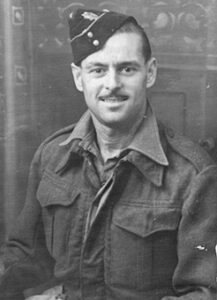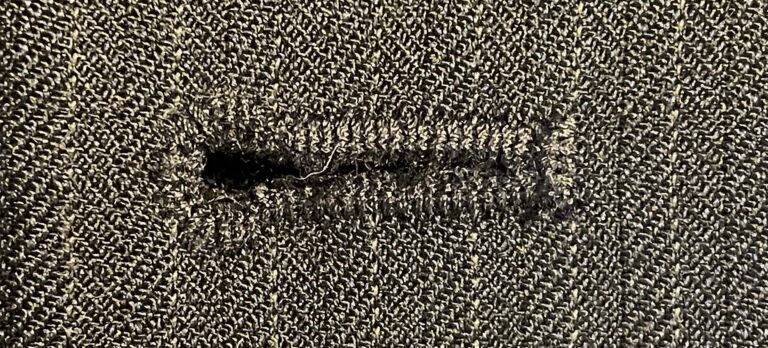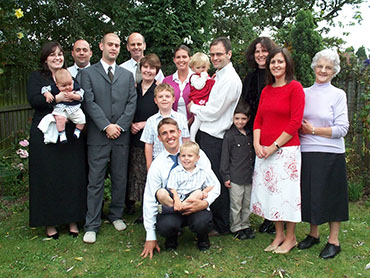
Thursday 8th May 2025 was the 80th anniversary of VE Day. This extract from the Westminster Abbey Service of Thanksgiving programme sums it up:
Right across the United Kingdom, people put up bunting and hauled furniture outside for street parties. There was a sense of nationwide unity and shared victory, as communities came together to celebrate. Children, many of whom had known only war, tucked into tables of food specially prepared for this day. As evening fell, and with over five years of the blackout finally over, men, women, and children marvelled at the sight of floodlit public buildings and celebratory bonfires.
Yet behind all the relief and the joy, this was also a time to remember loved ones who had not lived to see this momentous day, and to reflect on the ongoing war with Imperial Japan, which would not end until VJ Day, on the 15th August 1945.
Today we come together to commemorate the 80th anniversary of a remarkable day; a milestone in our shared history. Men and women from Britain and the Commonwealth all played their part in the final victory over Nazi tyranny. Above all, we thank and honour the Second World War generation who, both on the fighting fronts and on the home front, gave so much to protect our freedom and shared values.
I hope your heart was stirred, as mine was. I’ve always been a bit nostalgic for the 1930s and 40s, including the war years. It’s easy to minimise the painful terror of World War II at this distance, and probably my glasses are overly rose-tinted, but despite the tragedy of those days, and the toll of untimely death, there seemed much greater social cohesion: communities sticking together, neighbours helping out, everyone “doing their bit”. Oh, I know, I know: there was also intense poverty, inadequate medical care, limited education, stricter class divisions (“upstairs, downstairs” rigidly maintained), widespread smoking (cinemas and dance halls blue with smoke). Still, I love the music of the period, clothing styles, ballroom dances instead of discos, inoffensive movies, popular songs with a melody, a universal sense of what was “proper” — in fact moral values closer to my own. I suppose for people with good health, a decent job and modest wealth it was a great time to live. But maybe that’s true of any age; I know I’d have had fewer advantages and opportunities living then. Maybe we just pick out the best bits of past ages to celebrate.
It’s certainly true that World War II brought death: 384,000 soldiers and 70,000 civilians. And we shouldn’t forget another 300,000 servicemen and women who were severely disabled. It’s entirely appropriate we remember them all in celebrating Victory in Europe.
In the TV broadcast, tales from veterans were inspiring. Children or teenagers then, ninety-somethings now—memories of that momentous 1945 day were still sharp. A sudden end of the wartime blackout was often mentioned. Absence of light was a much hated necessity of war: no street lights, limited headlights on cars, blackout curtains on windows. My mother was the driver of an army lorry, and remembers driving through frequent Autumn fogs at night in the narrow country lanes of Kent, with hooded headlights scarcely brighter than a candle. With both windows down, she had colleagues stand on the running board each side of her cab hanging on through the window, free arms outstretched, skimming the hedges with fingertips to keep her in on the road. Urban streets were dangerous, road accidents frequent. On the night of VE Day, the sudden lighting of streets and towns was a moment of release — illumination in more ways than than just physical light.
After six years of darkness, street lights were glorious symbols of peace. A symbol too of an end to the moral and spiritual darkness in Hitler’s Nazi regime. As the German blitzkrieg spread across Europe, hope was gradually extinguished, country by country. Small flames of freedom refused to die though, and brave resistance fighters continued the struggle. Britain’s defiance gave them hope, and I’m proud to be part of the nation that, with substantial support from Commonwealth countries, halted the German juggernaut. For a time we were the last best hope for freedom, and it was a close-run thing. Most of the world thought it was just a matter of time before we went under. But our pilots, the glorious “few” managed to control the skies, making invasion too risky for Hitler.
That was then, but what of now? The same day as the celebrations, 8th May, I was conducting the funeral of Arthur Dowson, Barbara’s brother-in-law, so I missed the live broadcasts, including the two-minute silence. (all viewed later on iPlayer). Reflecting on the funeral tributes, the expressions of faith and hope, my testimony of Jesus Christ and his Church, I remembered we are still at war. Powers of darkness still try to extinguish the light. Our nation isn’t in physical peril right now, but other countries are, and the whole world is engaged in battles of political ideology, economic supremacy, ideals, beliefs, individual agency and even religion. This battle — the evil in heart and mind of people like Hitler — didn’t end on VE day, and began before the world existed. In our pre-earth life there was War in Heaven. Lucifer and a third of God’s children rebelled. They were defeated and cast out, but he continues the fight on Earth. His influence is everywhere. His strategy is the same: destroy agency, oppose God the Father, block faith in Jesus Christ, inflict mental and physical pain, destroy hope. His name is the Great Deceiver. He tells us black is white, darkness is light, bitter is sweet. He corrupts every good thing: movies, music, art, literature, social media, even charity. His tells us there is no Christ, no resurrection. He tells us we can’t do it anyway — it’s just too hard to be a disciple of Jesus. But just as we hung on in 1941, and reached VE day, WE CAN!
And we can because after the War in Heaven, Jesus came to earth and defeated Satan a second time — in Gethsemane, on the cross, then in his resurrection from the tomb. In a way incomprehensible for mortal minds, he took on him all our sins, all our pains and heartaches, and broke the prison of death. And so we sing: “Death is conquered, man is free, Christ hath won the victory.” He has complete power over Satan. If we turn to him, accept him, become his disciple, he will share his strength, and help us to our own personal Victory Day. There is no task, no challenge, no illness, no opposition, no crushing catastrophe that can defeat us, when Jesus Christ is our master.



